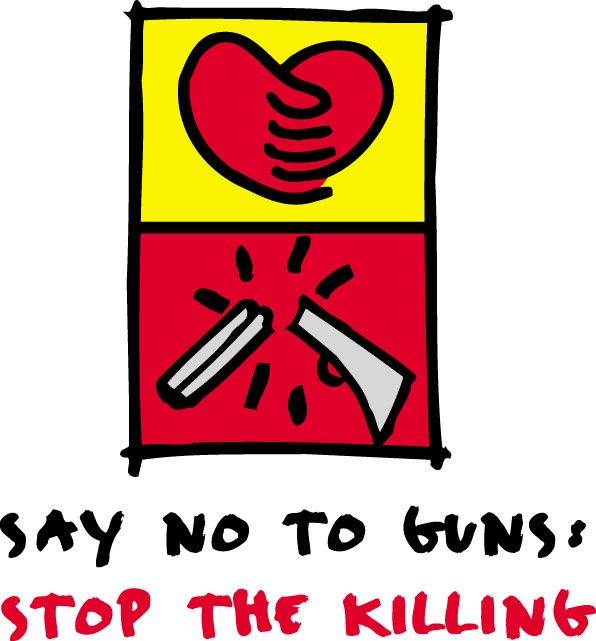|
Press Update
|
|
For immediate release Wait
for the homework, Mozambican bishop tells NGOs |
 |
| People of different faiths, colours, genders and ages converged at a prayer service organized by the World Council of Churches (WCC) just outside the grounds of the United Nations in New York, 13 July, as the first week of the UN Conference on Illicit Trade of Small Arms drew to a close. "Peace is a matter to be dealt with horizontally and vertically. We must express peace as a spiritual matter," Bishop Dinis Sengulane of the Anglican Church of Mozambique said as he welcomed some 50 participants. One of the nine members of the ecumenical delegation of the WCC, Bishop Sengulane congratulated the NGO community for what he said was its "success" in initiating the conference. "It is a fruit of our work; a small but significant step." He said, "The conference will give us homework. Listen to what it will be." Sengulane was standing next to three panels of photographs, letters and artwork that depicted the suffering and death of people because of small arms. Sponsored by the WCC, the panels are part of the Wall of Pain started by the NGO Viva Rio in Brazil in June last year. It was created to lobby for more stringent controls on small arms, explained Andre Porto of Viva Rio. More than 500 million arms and light weapons are estimated to be in circulation around the world. They have been weapons of choice in 46 out of 49 major conflicts since 1990 and have caused the death of four million persons. Eighty percent of the civilians killed by these weapons are women and children. Since 1997, the WCC has called on churches to pay special heed to micro-disarmament. The Council is now calling on this first UN conference on small arms to control the transfer of small arms and light weapons; to address social, political and economic conditions that generate demand for them; and to press for international support for initiatives that advance human security. Florella Hazeley of the Christian Council of Sierra Leone, a member of the WCC delegation, illustrated the need for these measures at the prayer service. In a first-hand account of the power of small arms, she told of the fear that gripped her and her city when Freetown was set on fire in 1999. Those who fled their homes were killed or abducted. Many of those left alive were released only after their limbs were amputated. Hazeley said her family was spared although many of their friends perished. Others who delivered testimonies of the impact of small arms included Cesar Villanueva of the Roman Catholic organization Pax Christi. Deborah Moldow, director of World Prayers for Peace, called on participants to "say it so that it could be heard at the United Nations and around the world: may peace prevail on the earth". The Rev. Kyoichi Sugino of the Buddist Bossho Kosei-kai offered prayers as well. The service included flower offerings in memory of those who had died because of small arms. The WCC ecumenical delegation is composed of members of its Commission of the Churches on International Affairs and representatives of the Peace to the City network. The Council is a founding member of the International NGO Action Network on Small Arms (IANSA). It affirms the importance of church action through the Ecumenical Network on Small Arms (ENSA).
|
Press releases on WCC participation at the UN Conference:
Oral
intervention on reduction of demand for small arms and the role 'We
do mind the dying'
--
press statement from the newly launched Humanitarian Coalition. Churches use story, symbol and dance to protest the use of and Devastating human costs of small arms and light weapons: WCC team at UN small arms prepcom - WCC Press Update Churches prepare for UN conference on Illicit Trade in Small Arms - WCC Feature Story |